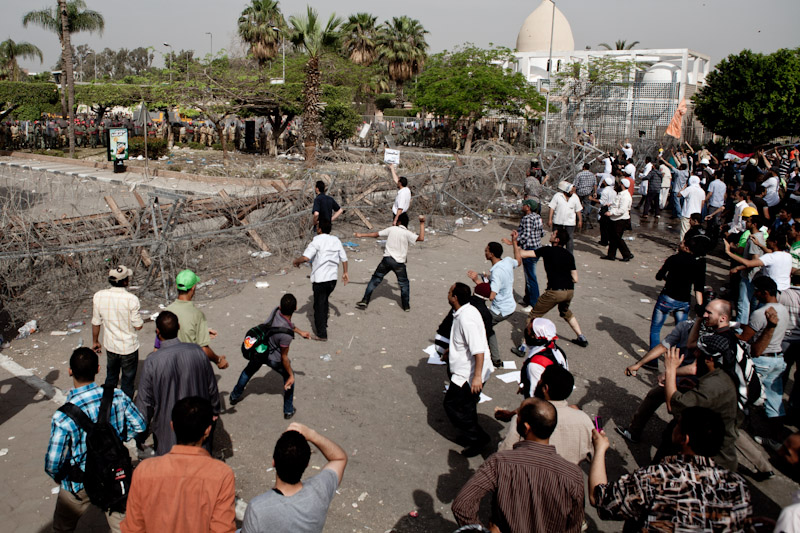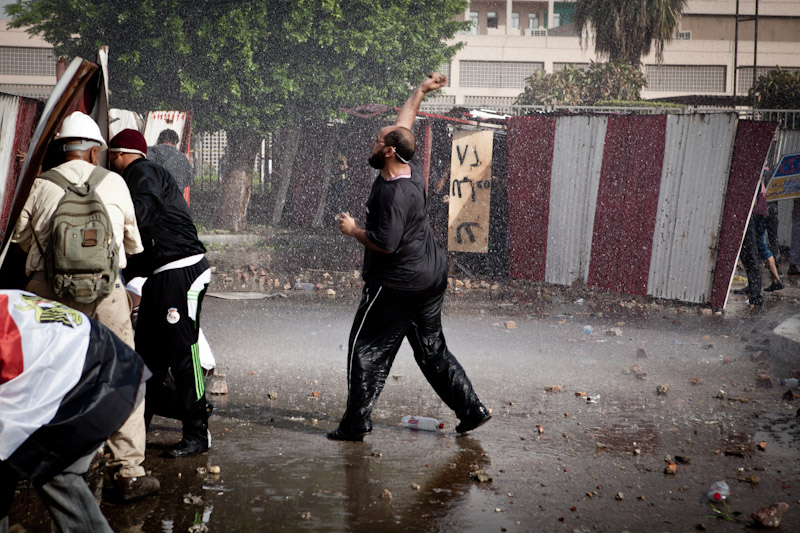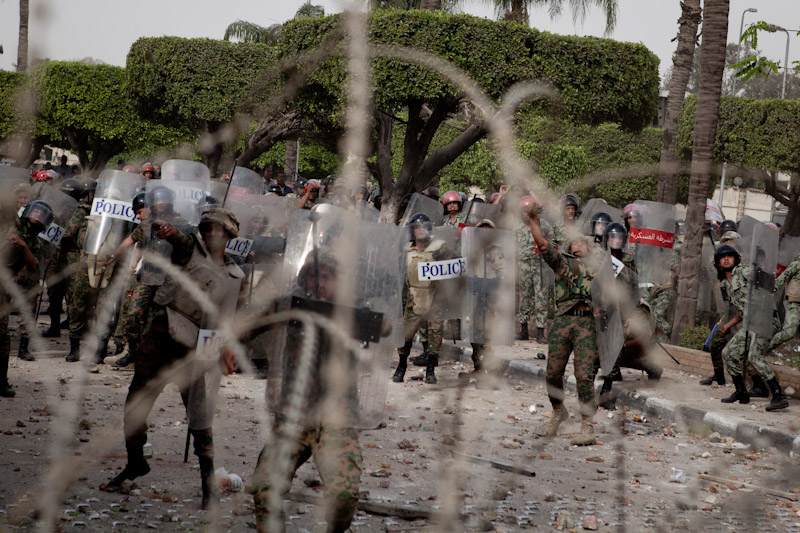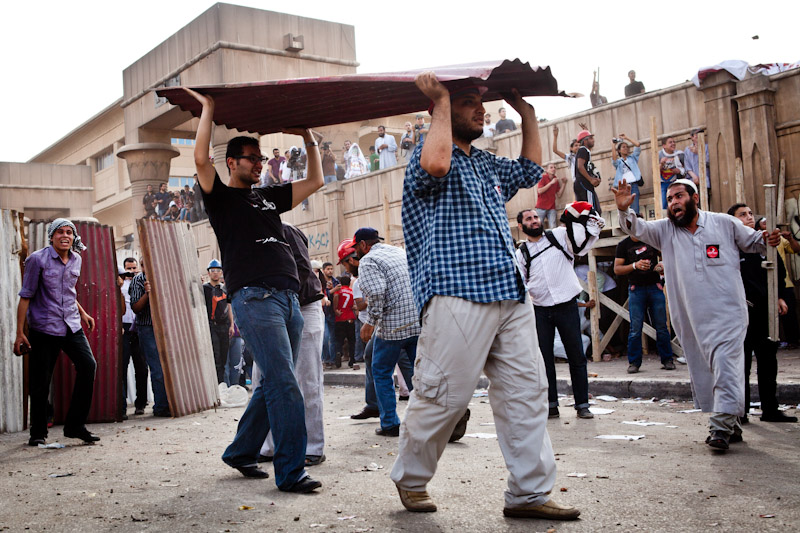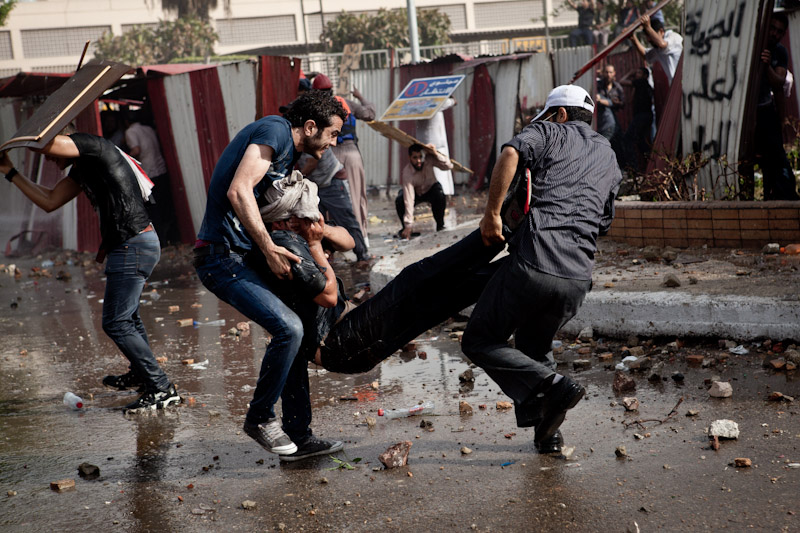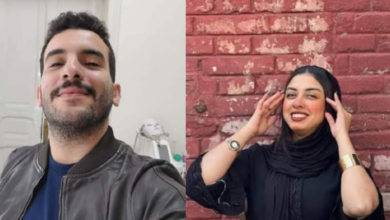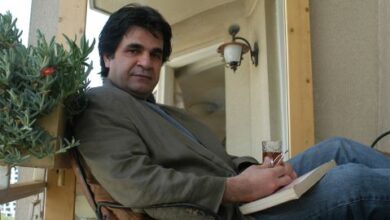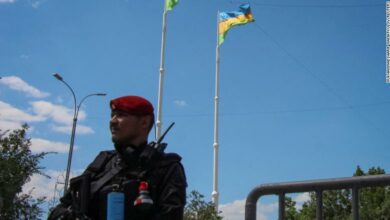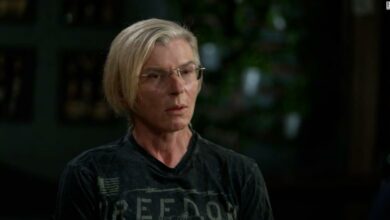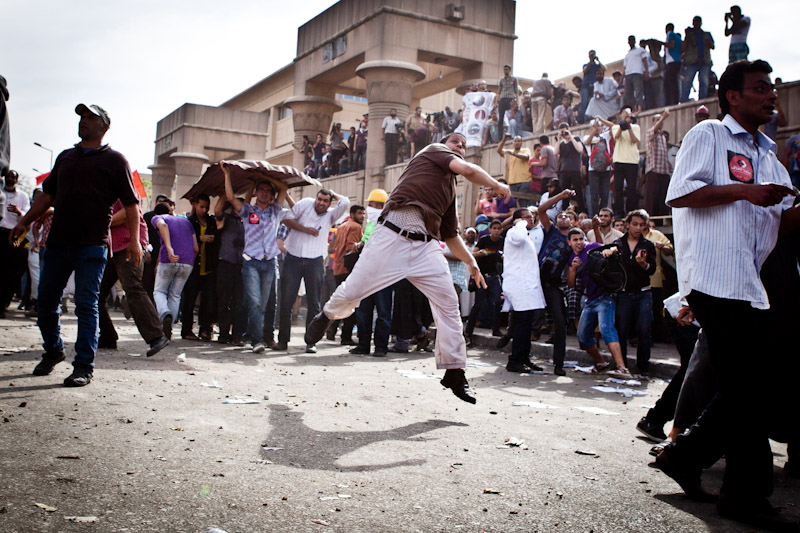
Egypt Independent’s Virginie Nguyen was hurt and detained while covering the clashes in Abbasseya Square last Friday. Herein, she gives an account of her journey between the frontline, hospitals and interrogation sites; an account intersected with her own pictures from the day.
I went to cover the Friday protests planned by different groups to demand that the ruling military council leave power by the end of June and that Article 28 of the Constitutional Declaration, which states that the Presidential Elections Commission's decisions cannot be challenged, be abolished. The protests followed clashes that erupted just two days before at the sit-in by the Defense Ministry in the neighborhood of Abbasseya. Eleven people were killed and the situation was already tense.
I started by going to Tahrir Square and headed to Abbasseya Square from there to follow the protests’ development. In Abbasseya, I positioned myself on a pedestrian bridge to take photos of the converging marches from above. When a massive march approached the Defense Ministry, I decided to go down and follow it more closely. As I was going down, a battle was already kicking off. A few protesters were already throwing rocks at soldiers. I didn’t think it would escalate so quickly.
But the armed forces responded by shooting water cannons at protesters and throwing rocks to disperse them and prevent them from approaching the ministry.
I found a wooden block on the ground near the frontline, so I stood on it to get a better view for my pictures. At the frontline, protesters were using pieces of metal to protect themselves from the storm of water and rocks. I eventually left my makeshift podium to get closer to the frontline. As I heard rocks hitting hard against the protesters’ shields, fear started kicking in. I was hesitant about whether to stay or leave. At this point, there was a storm of rocks coming from both sides of the frontline, and leaving in and of itself could be risky. I felt somewhat trapped.
Meanwhile, I was observing and taking pictures incessantly until a rock hit my face. My face was bleeding. A man next to me, seemingly a protester, took me by the hand, while placing a piece of metal on my head, and walked me to the field hospital. There, I received first aid treatment against infection, but I needed to go to a proper hospital for treatment. A woman, who coincidentally spoke French, my mother tongue, offered to help me.
We went to the nearby Ain Shams hospital. The hospital was marred by utter chaos with injured people arriving en masse. At some point, we were stuck inside, as the army started firing tear gas outside and arresting people arbitrarily.
After an hour of waiting in Ain Shams, army officers stormed the hospital. Some of them were also hurt in the clashes. A doctor asked me to leave the room so he could treat people who were more severely injured. So, along with the woman who was assisting me, we tried to find a safe way out of the hospital. In the messy corridors of the hospital, there were blood spots on the floor. We thought of photographing them, but it wasn’t long before we were caught by the military. As we walked among the officers, one of them started shouting at us, asking me to give him my camera. At first I refused, but when he got even angrier, I gave him one camera and tried to hide the other in my bag. Then he decided to arrest me, the woman accompanying me and another doctor from the hospital. They took us to a military hospital in an ambulance — a ride that didn’t last more than five minutes. I never knew what hospital it was.
After many exchanges in Arabic that I missed between the officers and the woman, the officers decided to take us to Zeitoun Military hospital. This was the hardest 10 minutes of the whole experience. When we came out of the hospital building, we arrived at a vast lot, seemingly part of the Ministry of Defense. Tens of soldiers were waiting around. Some soldiers were visibly injured from the clashes.
When we arrived, soldiers surrounded us. One shouted at me and hit me on the neck. Another one hit me in the back with his shield, and a third pinched my buttock. The officers who were accompanying us from the beginning eventually intervened to stop them and put me in an army ambulance. I lost sight and orientation because someone put his hands over my eyes. But I could hear and feel that I wasn’t in a safe area, and I was expecting another round of assaults to come soon.
In the ambulance, a soldier was lying unconscious and bleeding from the face. Throughout, I managed to keep my phone and subtly message friends and contacts at the Belgian Embassy of developments.
At Zeitoun Military Hospital, an older officer welcomed us and offered to perform mouth surgery on me. I refused.
So, he put some bandages on my mouth and engaged in a conversation with the woman accompanying me. After making photocopies of our IDs and passports and leaving us to wait for 30 minutes, the officers decided to take us to what I came to learn later that it was the National Security Agency offices for interrogation. At this point, I felt we could spend the night in prison or between military locations, and I was still bleeding and in need of surgery.
Another military ambulance took us to the interrogation site.
There, officers gave us water and took our IDs again. Two of them smiled at me and told me that they wouldn’t hurt me. They asked me why I was in Egypt, with whom I worked and where I was staying.
They checked all my pictures, stopping at close-ups and asking me if I knew the people I was photographing. I thought it was ironic.
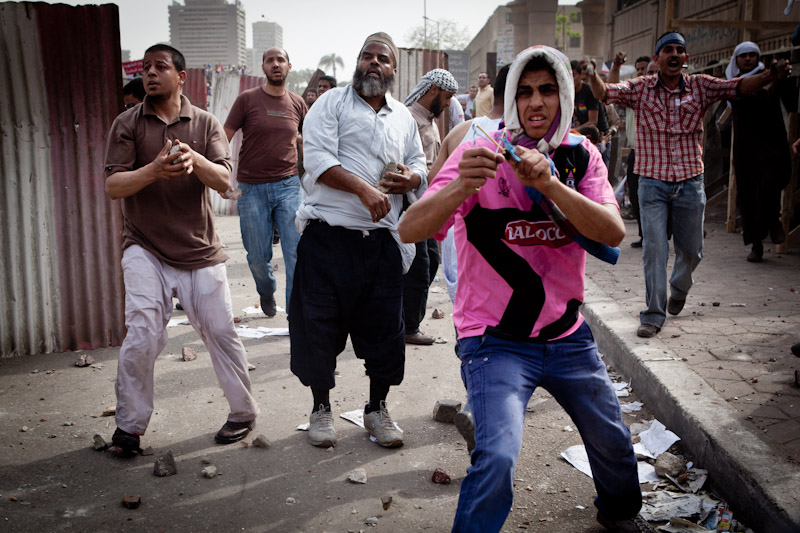
After an hour and a half, they finally decided to release us. On our way out, they apologized and gave me back my camera.
At the outside door of this security building, we flagged a taxi and I went directly to a hospital in Heliopolis with the help of my female friend and the doctor who had been arrested with us. There, I underwent my mouth surgery the following day. The rock that hit me fractured my upper jaw, pushing two of my teeth out of place and back further in my mouth.
When I got to the hospital to find my friends, work colleagues and embassy representatives waiting for me, I felt lucky. Given what I had seen during my brief moment of detention, I could have easily been among those still lying in a prison cell today, in the utter chaos and arbitrariness that ensued after the clashes.

